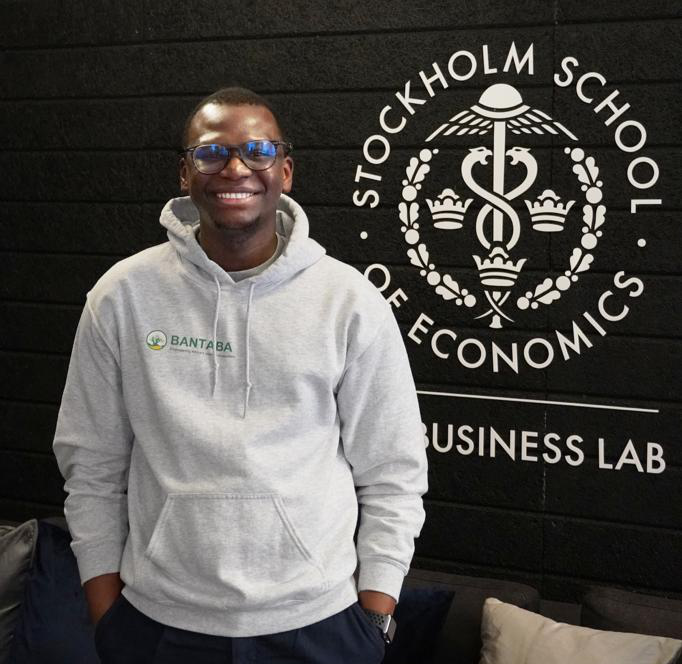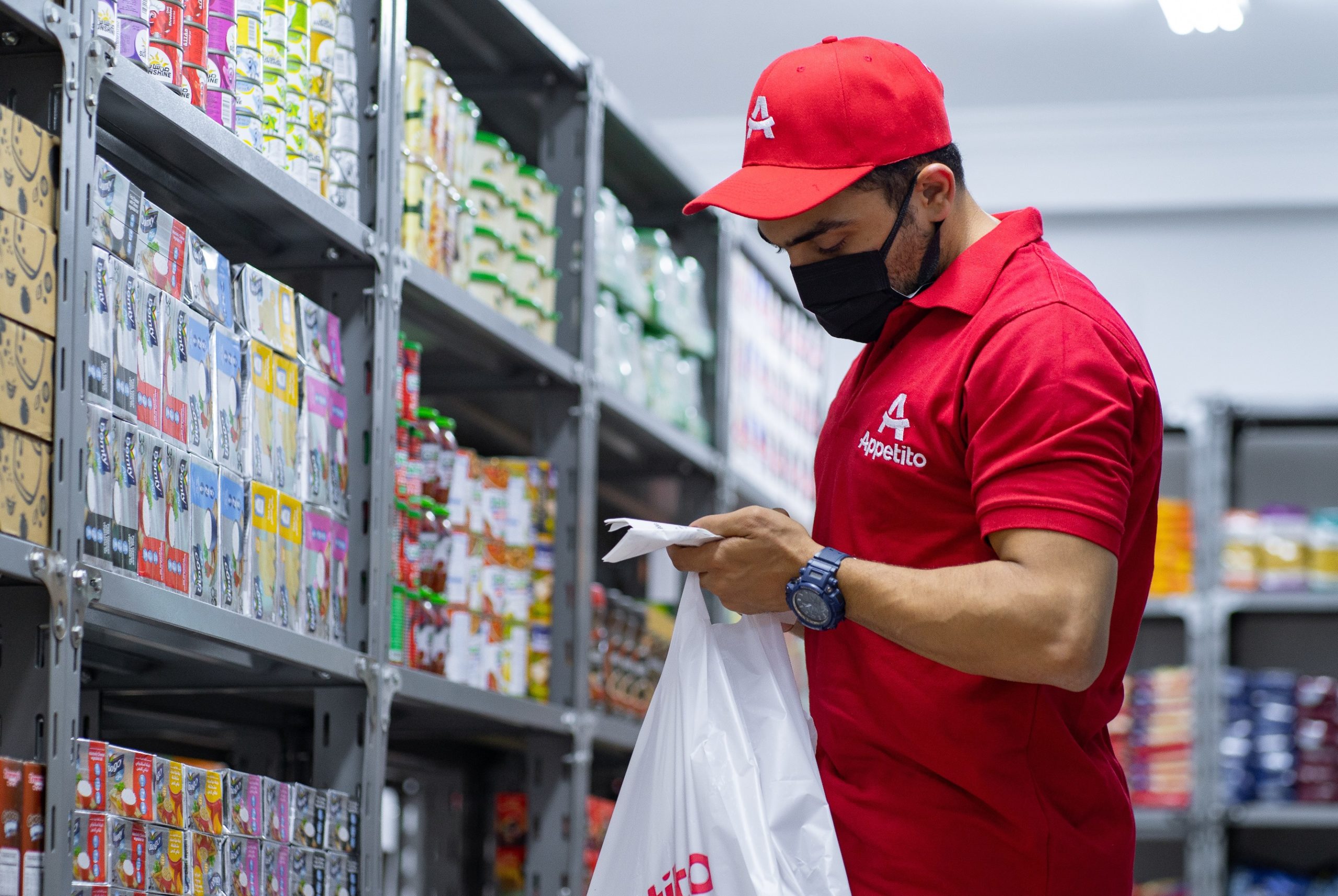A few months into the coronavirus pandemic in April 2020, a team of 4 students of African origin in Sweden—including The Gambia-born Lamin Darboe who had recently moved to Stockholm to pursue a master’s degree—contested in a climate action challenge organised by Norrsken Foundation and Stockholm Innovation & Growth (Sting).
Though the team, which also had Fabrice Ouedraogo, Eliane Birba, and Noufou Kafando as members, did not win the challenge, participating in the competition birthed what is today known as Bantaba, a Sweden-based digital matchmaking platform that connects African startups with professionals and investors in the African diaspora, of which Darboe is CEO.
What inspired the platform?
Darboe left his West African home country in 2012, initially going to the National Institute of Bank Management in India for 3 months to study banking and finance before he got a scholarship to attend Bocconi University in Milan. After completing his undergraduate studies in 2015, he moved to Ireland for 6 months to work for a consulting firm before returning to Italy. There, he worked within the finance team of a telecom company and in August 2019 moved to Stockholm to pursue an MSc at the Stockholm School of Economics.
During his almost-a-decade of travelling across Asia, North America, and Europe, one thing was constant: Darboe met many people of African origin who had done great for themselves professionally. And like him, they were willing to engage more actively with and invest in Africa even though they are no longer on the continent. But that was nearly impossible without moving back home, a rather impractical idea considering most have settled in their new locations and even started families.
Similarly, Darboe’s had the opportunity to interact with several entrepreneurs across Africa, and a recurring complaint by founders was the lack of support and resources available to them compared to their peers in other parts of the world. So, on the one hand, there was a pool of resources abroad waiting to be tapped, and on the other, readily available demand from entrepreneurs that needed them.
Working with a few students from Africa he met at the Norrsken-Sting climate competition, Darboe started building a platform to bridge this gap. “From renewable energy and aerospace engineering to machine learning and cloud computing, many Africans abroad have exceptional professional knowledge and experience,” he told TechCabal on a call. “Many of us have talent and skill sets that are highly needed back home coupled with a burning desire to engage more actively with Africa.”
Talent and funding, on one platform
“Bantaba” is an ancient Manding word for a big tree under which elders of an African village would gather to make important decisions, according to Darboe. “Like its origin, our Bantaba is a digital meeting place that bridges the gap between Africa’s tech startup ecosystem and diaspora capital, knowledge, and network,” he said. The platform is built on two value propositions.
First is helping founders with access to crucial professional support. African startups can create pages on Bantaba detailing the problems they’re solving to be discovered by diaspora mentors, consultants, and investors. Likewise, diaspora professionals can create profiles and get matched with startups based on their interests.
For instance, a Togolese startup in need of a consultant in artificial intelligence could be matched with UK-based Daniel, who has more than a decade of experience working as an AI engineer at Amazon, essentially facilitating knowledge transfer between the diaspora and startups in Africa.
“It could be something less technical even. For instance, African founders could reach out to diasporans experienced in VC investment for advice on their pitch decks and business plans,” explained Darboe, who has some experience in the early-stage investment ecosystem having worked for a VC firm and an incubator in Stockholm. “It’s about getting knowledge that will guide founders in the right direction. What’s more interesting is we charge nothing for this matching.”
The platform’s second core offering revolves around enabling access to capital, especially for startups with viable business models but struggle to raise funding at the early stage.
Though Africa saw a record ∼$5 billion in venture capital funding last year, there’s still relatively limited capital available to early-stage startups on the continent. Bantaba aims to address this by connecting founders with the diaspora wealth through its digital infrastructure. For context, remittance inflows to Sub-Saharan Africa reached $45 billion in 2021, per World Bank data, most of which were spent on consumption purposes.
Funding rounds launched by startups will have specific targets and investors can contribute in return for equity. With that opportunity, the diaspora can invest in promising African startups listed on and vetted by Bantaba, which will make money off each transaction.
“In the future, we plan to collaborate with local partners to validate startups after which those approved can launch fundraising campaigns on the platform,” Darboe explained. “Available data shows that 70% of startups in Africa lack access to talent and capital to grow their businesses. We’re addressing this with a digital platform that’s scalable and available to startups across the continent.”

Across Africa, a number of startups like Bantaba have emerged in recent years with the aim of changing the status quo of startup financing and venture capital on the continent. While similar, players in the space don’t operate a monolithic model.
Lagos-based GetEquity, for instance, allows companies digitise their assets via tokens and market themselves to angel investors, syndicates, and institutional investors, who can buy equity in a listed startup for as little as $10. Raise, an all-in-one platform in Kenya, helps African startups simplify fundraising process and close deals faster for a “third of the cost”, as well as manage equity and legal compliance.
Regardless of the model, these platforms enable underfunded entrepreneurs avoid the friction associated with conventional methods of funding a startup, by allowing them connect and network with potential investors beyond private funding and venture capitalist firms.
Since launching its beta platform in July 2021, Bantaba has onboarded more than 150 African tech startups from at least 20 African countries and over 300 diaspora experts and investors. “We’ve witnessed strong engagement between Africa tech startups and diaspora on the platform,” Darboe said, adding that the company has also built “strategic partnerships” with companies like Amazon Web Services (AWS) and some Nordic universities to create new value streams for startup users.
Bantaba recently raised more than $400,000 in pre-seed funding from Swedish angel investors to move from the minimum viable product (MVP) to a full-fledged product with expanded features. In addition to serving as a platform where diaspora talent and capital is accessible to African startups, Bantaba aims to provide relevant news updates to both parties, among other services.
Darboe envisions a future where the platform is eventually open to non-Africans abroad. “Our vision is to become the foremost platform for international investors with interest in Africa’s tech scene, starting with the diaspora community.”
Building a network of African startups and diasporan experts and investors will definitely not be a walk in the park but Darboe’s convinced his team is up to the challenge. Bantaba’s core team members have known each other for many years and according to the CEO, their biggest edge is the “understanding of the problem, the diaspora community, and Africa’s startup ecosystem”.
If you enjoyed reading this article, please share it in your WhatsApp groups and Telegram channels.






















